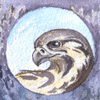
third part of the story
thank you much for your help. again ask for the literature translation:
- Hey, Owl! let's go hunting!
- No-where. Nowhere i go without cup of fresh brewed coffee.
- Wake up, Owl! We are in the wild! There is no even instant coffee!
If you decide to use google-translator, here is russian words
- Проснись, Сова! Пойдем на охоту!
- Ни-ку-да. Никуда я не пойду без чашки свежесваренного кофе.
- Очнись, Сова, мы в лесу. Тут и растворимого-то нет...
Please don't ask about how Owl know about coffee.
I think it is something in owl's blood. Genetic memory of all owls.
thank you much for your help. again ask for the literature translation:
- Hey, Owl! let's go hunting!
- No-where. Nowhere i go without cup of fresh brewed coffee.
- Wake up, Owl! We are in the wild! There is no even instant coffee!
If you decide to use google-translator, here is russian words
- Проснись, Сова! Пойдем на охоту!
- Ни-ку-да. Никуда я не пойду без чашки свежесваренного кофе.
- Очнись, Сова, мы в лесу. Тут и растворимого-то нет...
Please don't ask about how Owl know about coffee.
I think it is something in owl's blood. Genetic memory of all owls.
Category Artwork (Traditional) / Animal related (non-anthro)
Species Unspecified / Any
Size 700 x 961px
File Size 554.5 kB
Google translate does fairly well with the text of this, except for Ни-ку-да and the context for Тут и растворимого-то нет...
Here is my attempt at translating the text to 'natural sounding' contemporary American English:
- Wake up, Owl! Let's go hunting!
- No. Nowhere. I won't go anywhere without a cup of freshly brewed coffee.
- Wake up, owl, we are in the woods. There isn't even instant coffee here...
Your grammatical construct: "No-where. Nowhere I go" looks interesting in Russian but does not work well in English because starting a sentence with "Nowhere I go" sounds very awkward, English would generally be "I go nowhere" or "I don't go anywhere". I think the intent is to show owl is waking up and was groggy at the beginning of the sentence and becomes more clear. I decided to do that by starting with a very simple monosyllable "No.", then expanding it to two syllables "Nowhere.", then expanding it to a full sentence with more common English grammar like "I won't go anywhere without a cup of freshly brewed coffee." Another idea would be to start owl's groggy line with: "Who?" but spell it like it sounds "Hooo?" which is also how the sound owls make is written, for a fun word play with homophones (words that sound alike but are spelled differently).
You could replace "instant coffee" with a well-known brand name like "Folgers crystals", or replace "instant coffee" with a well-know commercial coffeehouse like Starbucks (where you could buy a cup of fresh brewed coffee).
Here's a fancier attempt:
- Sun's up! Wake up, Owl! Let's go hunting!
- Hooo? No. Nowhere. I won't go anywhere without a cup of freshly brewed coffee.
- Wake up, owl, we are in the wilderness. There is no Starbucks here...
Here is my attempt at translating the text to 'natural sounding' contemporary American English:
- Wake up, Owl! Let's go hunting!
- No. Nowhere. I won't go anywhere without a cup of freshly brewed coffee.
- Wake up, owl, we are in the woods. There isn't even instant coffee here...
Your grammatical construct: "No-where. Nowhere I go" looks interesting in Russian but does not work well in English because starting a sentence with "Nowhere I go" sounds very awkward, English would generally be "I go nowhere" or "I don't go anywhere". I think the intent is to show owl is waking up and was groggy at the beginning of the sentence and becomes more clear. I decided to do that by starting with a very simple monosyllable "No.", then expanding it to two syllables "Nowhere.", then expanding it to a full sentence with more common English grammar like "I won't go anywhere without a cup of freshly brewed coffee." Another idea would be to start owl's groggy line with: "Who?" but spell it like it sounds "Hooo?" which is also how the sound owls make is written, for a fun word play with homophones (words that sound alike but are spelled differently).
You could replace "instant coffee" with a well-known brand name like "Folgers crystals", or replace "instant coffee" with a well-know commercial coffeehouse like Starbucks (where you could buy a cup of fresh brewed coffee).
Here's a fancier attempt:
- Sun's up! Wake up, Owl! Let's go hunting!
- Hooo? No. Nowhere. I won't go anywhere without a cup of freshly brewed coffee.
- Wake up, owl, we are in the wilderness. There is no Starbucks here...
You're welcome. I am glad you like it.
Grammar note: The correct English is "freshly brewed coffee" but many people today would say "fresh brewed coffee". The -ly suffix on freshly changes the adjective "fresh" (which modifies a noun like coffee) into an adverb "freshly" (which modifies a verb like brewed). However it has become common in contemporary American English to leave off the -ly suffix and thus use an adjective to modify a verb.
Grammar note: The correct English is "freshly brewed coffee" but many people today would say "fresh brewed coffee". The -ly suffix on freshly changes the adjective "fresh" (which modifies a noun like coffee) into an adverb "freshly" (which modifies a verb like brewed). However it has become common in contemporary American English to leave off the -ly suffix and thus use an adjective to modify a verb.

 FA+
FA+









Comments